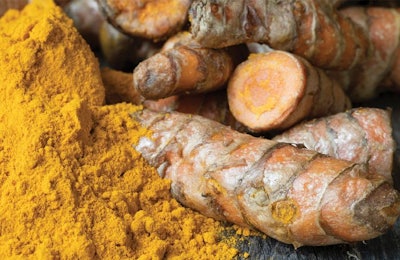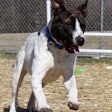
A team of Brazilian researchers at Santa Catarina State University (Universidade do Estado de Santa Catarina) experimented with producing dog food using curcumin to replace synthetic antioxidants. Curcumin derives from the turmeric plant (Curcuma longa), giving the spice its yellow color.
To conduct their experiment, the researchers added 100 mg/kg of curcumin after extrusion along with other micronutrients, according to the paper published in Archives of Animal Nutrition, resulting in a final concentration of 32.9 mg/kg of curcumin. They prepared another control dog food with the same formulation, minus the curcumin. The researchers then stored the dog food for six months, after which they found that feed composition and pH had not changed. However, dog food made with curcumin as an antioxidant had lower protein oxidation, lipid peroxidation and higher total antioxidant capacity.
Now that the dog food had been given a chance to spoil, the scientists fed the two diets to 12 young Beagle dogs, six in each group. The dogs ate twice a day in their individual kennels. The researchers drew blood samples from the dogs at one, 35 and 42 days. The Beagles on the curcumin diet had greater numbers of red blood cells and more white blood cells on day 42.
Health effects of cucurmin on dogs
By experiment’s end, the number of lymphocytes significantly fell in dogs that ingested curcumin. The scientists concluded that this suggests an anti-inflammatory effect, manifested as a decrease in globulin levels. The dogs on the curcumin diet also had higher serum levels of glucose, urea, triglycerides and cholesterol. Curcumin increased activity in several antioxidant enzymes, non-protein thiols and the total antioxidant capacity in the Beagle’s blood serum. This consequently reduced levels of oxygen reactive chemicals, or oxidants. Curcumin supplementation did not increase growth or weight gain in the Beagles.
The scientists concluded that curcumin improved animal health by stimulating the antioxidant system and having an anti-inflammatory effect.
















